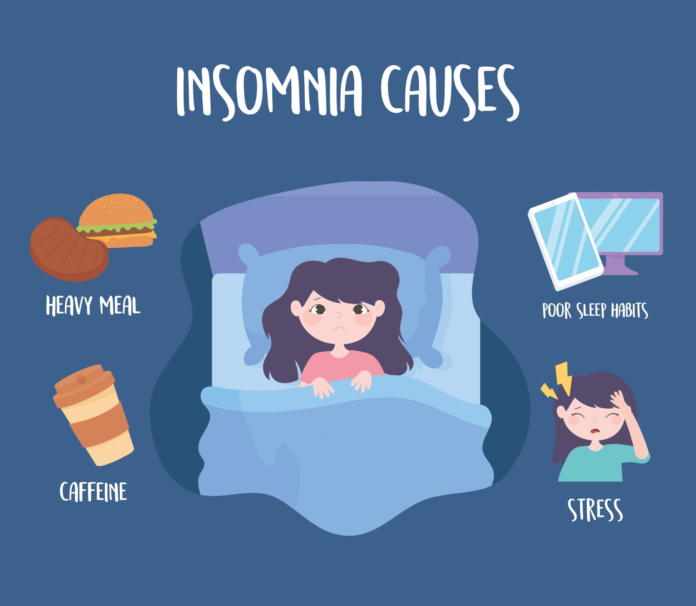By Glenda Mauro
1. Hormonal change: During adolescence, the secretion of melatonin, the hormone that regulates the sleep cycle, is delayed, which can make adolescents feel more awake at night. This is partly due to the changes in their biological clocks, or circadian rhythms, that occur during puberty. However, melatonin is not the only hormone that influences adolescent sleep. Other hormones, such as cortisol and growth hormone, also play a role in sleep quality and quantity. For example, cortisol, a stress hormone, peaks in the morning and helps us wake up, but it can also be elevated by emotional or physical stress, which can interfere with sleep. Growth hormone, which is important for physical development, is mostly released during deep sleep, so insufficient sleep can affect growth and maturation. Therefore, hormonal changes are complex and multifaceted, and they can have significant impacts on adolescent sleep and well-being. To cope with these changes, it is important to follow good sleep hygiene practices, such as maintaining a consistent sleep schedule, avoiding caffeine and screen time before bed, creating a comfortable and dark sleeping environment, and getting enough physical activity and exposure to natural light during the day. To help regulate sleep, it’s crucial to encourage a consistent sleep routine, even on weekends. This involves going to bed and waking up at the same time every day, which helps stabilize the body’s internal clock.
2. Excessive use of screens:The human sleep-wake cycle follows a circadian rhythm largely influenced by sunlight. When it’s bright outside, we become more alert. As darkness sets in, our bodies produce melatonin—a hormone that induces sleepiness. Screens emit blue light, which suppresses the production of melatonin, making it difficult to fall asleep. The longer we spend on screens, the greater the impact on our sleep quality. It is recommended to limit the use of electronic devices at least one hour before bedtime. Additionally, there are apps and device filters that reduce blue light exposure, which can help mitigate this effect..
3. Academic stress: When students face academic stress, their sleep routines often become irregular. Stress and anxiety related to academic performance can lead to irregular sleep patterns. To address this, it is crucial to set schedules for studying and relaxing, as well as promoting the importance of stress management techniques, such as meditation, yoga, or simply relaxing time before bed. Late-night study sessions, worrying about exams, and performance pressure can disrupt the natural sleep-wake cycle. Irregular sleep patterns affect both the quantity and quality of sleep.
4. Changes in routine: Adolescents often experience a shift in their sleep schedules during weekends and holidays. The allure of staying up late, socializing, or catching up on missed leisure activities can lead to irregular sleep patterns. Late nights followed by sleeping disrupt the body’s natural circadian rhythm. Consistency is key. Maintaining a regular sleep-wake schedule—even on weekends—helps stabilize the body’s internal clock. Maintaining a regular routine, even on weekends, helps stabilize your sleep cycle and prevent insomnia.
5. Social Anxiety: Concerns about social acceptance, interaction with peers, and other social aspects can lead to stress and anxiety, which in turn affects sleep. Social anxiety disorder, also known as social phobia, generates intense anxiety, insecurity, and shame in social situations due to fear of the judgment or opinion of others. Teens with social anxiety may experience difficulty falling asleep, nighttime awakenings, or fragmented sleep due to rumination about social situations and worries about the judgment of others. Encouraging open communication, offering emotional support, and promoting activities that build confidence and self-esteem can help reduce anxiety and improve sleep.
6. Caffeine consumption: Caffeine is a stimulant that has a half-life of about 3 to 5 hours in the body. This means that after consuming caffeine, half of it remains active in your system for that duration, affecting the quality of sleep. Caffeine stimulates the central nervous system, promoting alertness and temporarily reducing feelings of fatigue. Even if you manage to fall asleep, caffeine can reduce the overall quality of sleep. It may lead to lighter, more fragmented sleep and affect the restorative deep sleep phases. Limiting caffeine intake, especially in the afternoon, and opting for alternatives such as water or relaxing infusions can help prevent insomnia.
7. Mental health problems: Depression and anxiety are common in adolescence and can have a significant impact on sleep. A serious lack of sleep or severely disturbed sleep is one of the most common symptoms of depression among adolescents. When you’re wracked with doubts or worries, falling asleep becomes challenging, regardless of how tired you might feel. Interestingly, sleep problems might start before the onset of depression, raising the risk of mental health issues in the future. Addressing sleep disturbances early on can potentially lower the risk of depression later in life. Sleep problems can predict future depression. A meta-analysis of 34 studies found that if people experience sleep difficulties, their relative risk of suffering from depression later in life doubles. It is essential to seek professional help if you notice signs of mental health problems and establish consistent sleep routines to promote adequate rest.
8. Lack of exercise: Engaging in regular physical activity promotes overall health, including better sleep quality. Exercise helps you fall asleep faster and enjoy deeper, more restful sleep. Across age groups, individuals who maintain a regular exercise routine are less likely to experience insomnia and sleep disturbances. Moreover, those who are more physically active tend to be less susceptible to developing insomnia later in life. Studies have shown that individuals with chronic insomnia who begin regular exercise can fall asleep up to 13 minutes faster. Exercise also helps them stay asleep for an additional 18 minutes. Remarkably, exercise has been found to be just as effective as hypnotic drugs in relieving insomnia.

